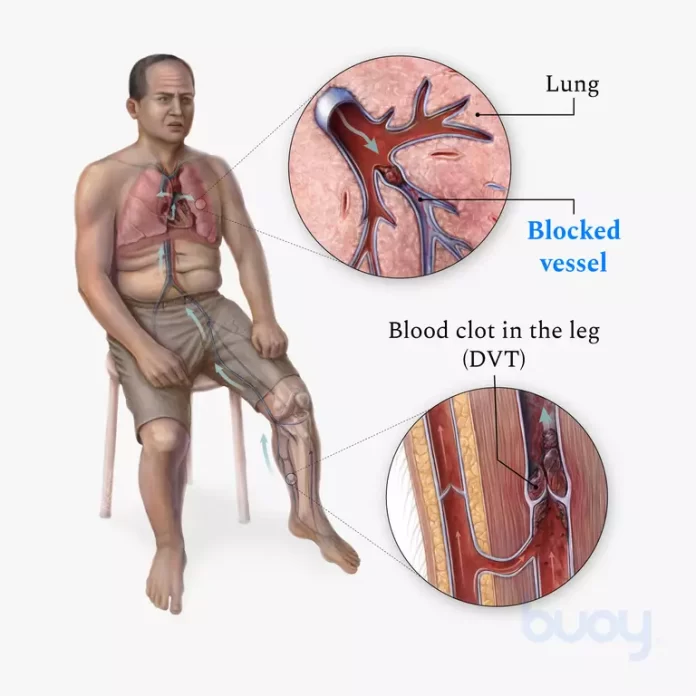Reports from Ugandan health experts have attributed unexpected deaths to the fact that blood clots are on the rise.
One may ask, What are blood clots? Blood clots are a final product of the blood coagulation step in hemostasis. In short, they are gel-like masses that manage the bleeding.
They prevent blood from flowing well and can develop in response to an injury or the trauma your body experiences during surgeries or other medical procedures.
Reports in Uganda show that the most common causes of blood clots are generally factors related to urban lifestyles like overeating, excessive sitting at work to meet deadlines, and alcohol consumption.
Other reports say it could be post-surgery complications, health conditions like cancer, genetic factors, physical inactivity, and other risk factors like smoking, obesity, and age.
According to Dr. Paul Kasenene, a prominent nutrition and lifestyle medical doctor, clots in the chest or lungs called Pulmonary Embolism (PE) are the ones that kill most and fastest.
Kasenene said that pain in the calf muscle, which is the one on the back of the lower leg, can sometimes be a sign of a clot, especially if the leg swells and is painful. He notes that these clots in the calf often move to the lungs, causing a PE that often kills.
“Never take calf pain, loss of breath, or chest heaviness lightly, especially if you are inactive or always seated on the desk, travel a lot, are immobile due to injury or sickness, or have gotten a COVID vaccine,” he states.
Dr. Kasenene urges that when one feels any tightness in the chest or any sudden loss of breath, they should immediately go for a check-up before it’s too late.
“If you or anyone develops sudden and unexpected chest tightness or loss of breath, even if it lasts for a short time and disappears, you should immediately visit a hospital that can handle a clot, not small nearby clinics,” Dr. Kasenene wrote on his social media.
Dr. Kasenene says that if symptoms begin at night, one should not even wait for the morning but rather seek care immediately.
The nutrition doctor emphasizes that clots can be treated and death prevented if one seeks care in a timely manner.
Kasenene also advised taking several natural remedies, like garlic, ginger, and turmeric, because they have been shown to reduce inflammation and the risk of blood clots.
He says other ways to prevent blood clots and improve general body health include: going for a check-up occasionally; exercising regularly; eating well; getting enough sleep; drinking more water; taking warm water; managing stress and being grateful; drinking less alcohol; and having medical insurance.
Studies show that by addressing these common causes and risk factors, individuals in Uganda will be able to take preventive measures to reduce the increased cases of blood clots and associated complications.















